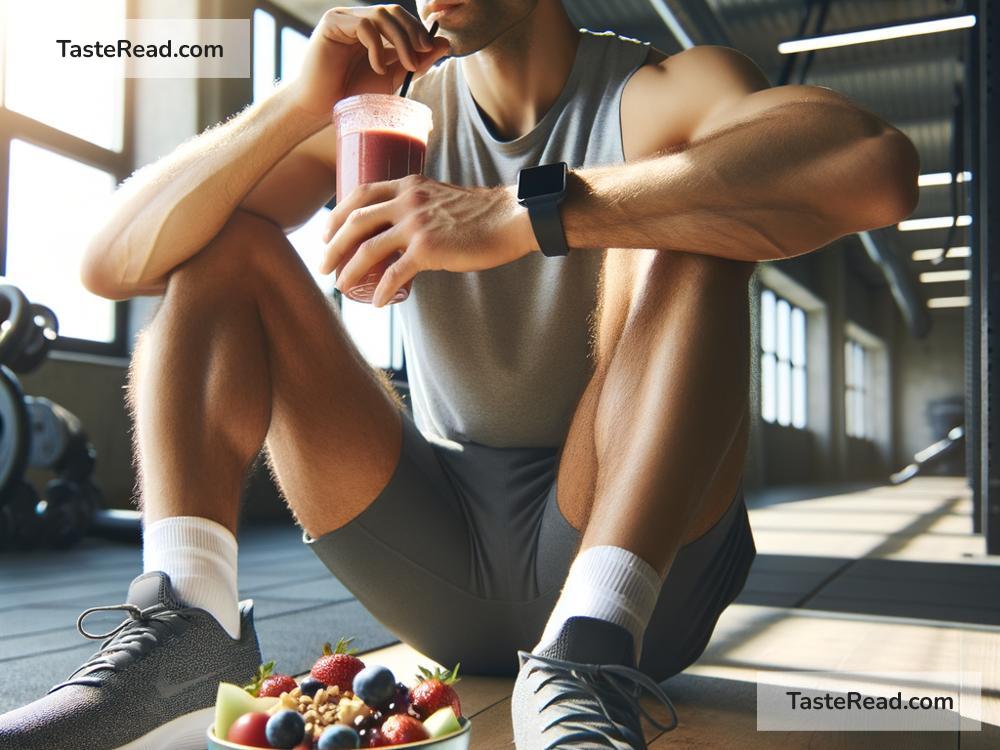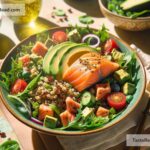The Role of Nutrition in Athletic Performance
Athletic performance is about more than just skill and hard work—it’s also about how you fuel your body. Nutrition plays a critical role in helping athletes perform at their best. Whether you’re a weekend runner or a professional athlete, what you eat has a direct impact on your energy, endurance, recovery, and overall success in sports. In this article, we’ll explore the importance of nutrition in athletic performance in simple terms.
Why Nutrition Matters
Your body is like a car, and food is the fuel that drives it. Just as you wouldn’t put low-quality gas in your car before a long trip, you shouldn’t fill your body with poor-quality food before training or competing. Good nutrition gives you the energy to perform, prevents injuries, and speeds up recovery after a workout. Without proper nutrition, you may feel tired, sluggish, or even sick, which can prevent you from reaching your goals.
The Building Blocks: Macronutrients
There are three key nutrients your body needs to function properly: carbohydrates, proteins, and fats. These are called macronutrients, and they each play a unique role in athletic performance.
-
Carbohydrates:
Carbs are the body’s main energy source. During exercise, your muscles rely on stored carbs (called glycogen) for fuel. Eating foods like rice, bread, pasta, fruits, and vegetables can help fill your glycogen tank. If you don’t eat enough carbs, you might run out of energy during workouts or competitions. This is why athletes, especially those in endurance sports like running, cycling, or swimming, focus on eating carbs before big events. -
Protein:
Protein is the building block of muscles. When you exercise, tiny tears form in your muscles, and your body needs protein to repair them and make them stronger. Foods like chicken, fish, eggs, beans, and tofu are great sources of protein. If you’re lifting weights, playing contact sports, or recovering from an intense workout, protein is essential for helping your body rebuild and recover. -
Fats:
Fats are often misunderstood, but they are an important energy source, especially for long-lasting, low-intensity activities. Healthy fats like those found in avocados, nuts, seeds, olive oil, and fatty fish give your body slow-burning energy. However, fats should be balanced with carbs and proteins to ensure proper nutrition.
The Importance of Hydration
Water is another key part of nutrition that athletes sometimes overlook. Staying hydrated is essential for maintaining energy and preventing fatigue. When you sweat during exercise, you lose water and electrolytes like sodium and potassium. If you don’t replace these, your muscles won’t work as well, and you might feel tired or dizzy.
To stay hydrated, drink water throughout the day and especially before, during, and after exercise. For longer workouts or events, sports drinks that contain electrolytes can be helpful. Just make sure you don’t wait until you feel thirsty—by then, you’re already dehydrated.
Timing Your Meals
When it comes to nutrition, timing can make all the difference. Eating the right foods at the right time can improve your performance and recovery.
-
Before Exercise:
A small meal or snack that includes carbs and a little protein can give you energy and keep you focused. For example, a banana with peanut butter or a bowl of oatmeal about 1–2 hours before exercise works well. Avoid heavy or greasy foods, as they can upset your stomach. -
During Exercise:
If you’re exercising for more than an hour, your body will need extra fuel. Sports drinks, energy gels, or a handful of nuts can help you keep going. -
After Exercise:
Recovery is just as important as preparation. After a workout, your body needs protein to repair muscles and carbs to refill glycogen stores. A smoothie with yogurt, fruit, and spinach is a great post-workout option. Try to eat something within 30–60 minutes after exercising.
Supplements: Are They Necessary?
Many athletes wonder if they need supplements to boost their performance. While some supplements, like protein powders or electrolyte tablets, can be helpful, they are not a replacement for a well-balanced diet. Whole foods should always come first because they contain vitamins, minerals, and other nutrients that your body needs. Supplements should only be used to fill gaps in your diet or as recommended by a doctor or nutritionist.
Balance is Key
It’s important to remember that nutrition is about balance. Eating too much of one type of food or cutting out entire food groups can harm your performance and health. For example, avoiding carbs might make you feel tired, while eating too many sugary snacks can lead to energy crashes. Instead, focus on eating a variety of nutrient-dense foods to support your body and goals.
Final Thoughts
In sports, success isn’t just about training hard—it’s also about eating smart. The right nutrition can give you the energy, strength, and focus to push your limits and recover quickly afterward. Whether you’re aiming for a new personal record or just trying to keep up with your team, paying attention to your diet is one of the easiest ways to improve your athletic performance.
So, the next time you hit the gym, the field, or the track, think about what you’re putting into your body. Treat food as fuel, stay hydrated, and remember that your health comes first. With good nutrition and consistent training, you’ll be on your way to reaching your athletic goals!


